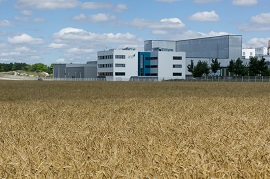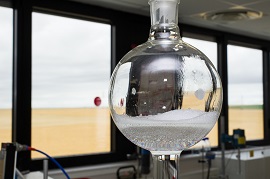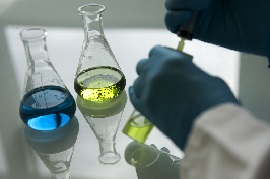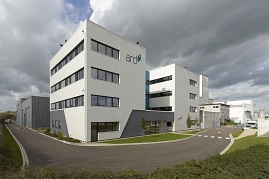Our partners
How ARD has established partnerships with first-rate organisations
Being involved in creating value from and using plant resources, ARD quite naturally became a member of the IAR competitiveness cluster. This cluster, which has a global reach, is dedicated to bio-based products and bio-refinery, collaborates with numerous stakeholders, from the French state, to the European Union, regional companies, international start-ups, and global industrial groups.
Industrial clients
Helping companies and start-ups to optimise the scaling up of bio-based products is one of ARD's areas of expertise.
At the heart of this green innovation centre, many entrepreneurs, especially in biotechnologies, have been able to test, optimise, and develop innovative molecules.
Many companies have put their trust in ARD for its technical expertise as well as its respect for confidentiality rules. We can cite, for example:
- Wheatoléo, a subsidiary of ARD, which has been producing green surfactants (made with pentoses and fatty acids), since 2008, which are now used in many applications such as detergents and plant health products.
- BioAmber, (a former joint venture of DNP Green Technology and ARD), the first company to have developed a technology for the commercial-scale production of bio-based succinic acid.
- Amyris, an American biotechnology company with a global reach
- Corbion, a Dutch agro-industrial group
The Futurol Project (Procethol 2G), which involves 11 industry stakeholders and aims to produce second-generation ethanol from lignocellulose, by-products from agriculture and forestry, and residue or dedicated biomass.
Shareholders
Many agro-industrial stakeholders have joined forces with ARD to support innovation and invest in white biotechnologies. These include several companies with deep roots in the Champagne Ardenne region, such as Vivescia Industries, Cristal Union, Crédit Agricole du Nord Est, LRD (a union of alfalfa cooperatives), CRD (a union of grain cooperatives), and Unigrain.
OUR SHAREHOLDERS

Education and academic research at the Centre for excellence in white biotechnologies (Centre d’Excellence de Biotechnologies Blanches - CEBB)
Inaugurated on 1 December 2016, the CEBB is a new organisation whose main objective is the development of new ways to create value from biomass and to study the economic impact of this activity. To achieve this, the centre chose to work in two complementary directions: higher education and research and innovation. In partnership with University of Reims Champagne Ardenne and schools like Centrale Paris, Agro Paris Tech, and Neoma Business School, this academic hub is a centre for innovation whose purpose is to be at the crossroads between the best national, European, and international networks in the field.
OUR PARTNERS







